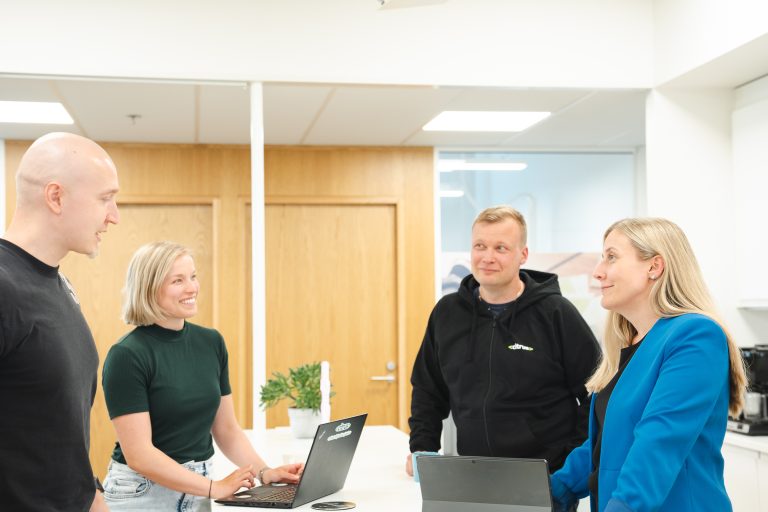
eAuction is an efficient way to organize the price negotiations. It is easy to set up and it gives an equal opportunity to all participating bidders. To many eAuction still is a new way of running the price negotiations, and therefore it might not be used – even if the benefits are undisputed.
We gathered below some of the most common questions on eAuctions that normally come up in the discussions with the buyers. We hope that these answers from our experts will help to consider how eAuctions could be used in your own negotiations. Our team is here for you - we can help in evaluating whether your case is suitable for an eAuction!
1. Is the eAuction a speed race?
No. The buyer does set a time frame, by which the bid must be submitted. But depending on the auction type, a new bid will start a time extension. This means that all the participants will have a chance to react to the changed situation. Therefore, waiting for the last few seconds does not benefit the bidder either.
2. For what kind of scope is the eAuction suitable for?
The object or nature of the case does not limit its suitability for the auction. It might be products, services or raw materials as well as one-time deliveries or annual contracts. What is essential, is that the scope must be clearly defined, so that the bidders are able to calculate their prices. In any case, this is important for a successful deal, even if the eAuction is not used.
3. Can eAuction be used only in cases with high value?
From the buyer’s point of view, it doesn’t need to be the biggest deal of the year. But it’s good to have enough volume so that the deal is interesting for the bidders. This way the bidders are more likely to place competitive bids and make their best efforts to ensure the winning the deal.
4. Will the bidders know, who are the other participants?
No. The situation is comparable to any traditional negotiation: after the RFQ the buyer might give a chance to improve quotations but does not reveal which candidates are still participating the negotiations. The auction works the same way, the bidders in the eAuction do not know who are the other participants or how many participants there are.
5. Can anyone be invited to participate in the auction?
It is recommended to invite only the bidders that are genuinely viable options. If a candidate does not meet the criteria defined in the RFQ phase, it is better not to continue the process with them. All the participating bidders must be able place their bids on the scope defined by the buyer.
6. What if there are other differences between the bidders in addition to the price?
All differences, such as quality, freight costs or payment and delivery terms, are entered to the eAuction tool beforehand. This ensures that the comparison is fair and all the factors are taken into account in the comparison.
7. Will all the bidders see the final price?
The buyer decides, how much information is shared to the bidders. One option is to show the leading price. But even then it might not be the exact price someone else has quoted, since there are usually factors included in the comparison (see question 6.). Therefore the leading price shows the level under which this bidder would need to bid in order to get the leading position.
8. Will the bidders know how to participate?
The eAuction is very simple to use: the bidders are able to see their own situation and place their own bids. What is also important, is that the bidder has to have enough time to go through the instructions and terms and calculate their best prices before the auction. If necessary, a mock auction can be arranged to try out placing bids in the tool.
9. Do we have to commit to the eAuction result or is it possible to continue negotiations afterwards?
Committing to the eAuction result is highly recommended. When the buyer informs that the successful bidder will receive the deal, the bidders are more likely willing to quote their best prices in the auction.
Sometimes committing to the auction result may not possible and negotiations have to be continued after the eAuction. This is also possible, but the most important thing is to communicate the rules to the bidders clearly before the auction.
10. How should we start?
The process is started normally: first defining the scope and finding out the potential candidates. The best way to share the information and ensure that the candidates meet the requirements, is to run a RFP or RFQ. When the first tendering round is done with Noventia eRFx, it is very easy to continue to the eAuction phase.
Criteria for a successful eAuction:
Specifications – Hankinnan kohteen määrittely selkeästi
Volyymi – A sufficient volume to ensure the bidder’s interest
Competition – Required for an active eAuction
Interested? Contact us – we are happy to help you in your projects!

